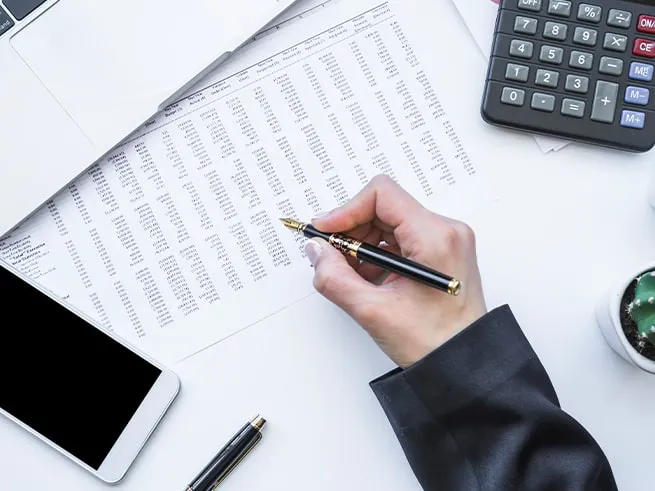Managing property finances is more intricate than handling individual or business accounts. Precise property management accounting plays a vital role for various reasons.
Firstly, it aids in monitoring your financial situation and spotting opportunities to save money or boost revenue. Secondly, it ensures adherence to tax laws, preventing expensive penalties. Lastly, it equips you with the insights needed to make well-informed business decisions.
This comprehensive guide will simplify property management accounting for you, making it easy to grasp and implement.
Table of Contents
- What Is Accounting for Property Managers?
- Understanding Property Management Accounting
- Top 15 Terms for Property Management Accounting
- How to Set Up Your Property Management Accounting?
- Reporting and Financial Statements for Property Management
- Best Practices for Property Management Accounting
- Frequently Asked Questions
- Conclusion
Understanding Property Management Accounting for Investors
Property management accounting is all about keeping tabs on the money side of owning and running rental or association properties, including any income or expenses tied to the property or your own business. It is an important part of property management because it helps you stay on top of your finances, make smart decisions, and stick to the rules of tax laws and regulations.
Accounting in property management is a specialized field focused on handling the money aspects of owning and running rental properties. It involves tasks like
- Financial planning
- Tax planning
- Payroll processing
- Keeping financial records
- Getting rent payments
- Tracking expenses
- And preparing financial statements.
Getting the numbers right is crucial for property managers to make good decisions about their business and follow the rules of tax laws and regulations.


Accounting for Investors

Top 15 Terms for Property Management Accounting

These are the 15 must-know terms for property management accounting. Let’s get started!
Accounting Period
Accounts payable is the amount of money your business owes to vendors. It typically involves payments for products or services that you use to operate your business, like the bill for a contractor fixing a property.
This is the money you are currently owed for your services. It includes any outstanding invoices, unpaid fees, or rent balances.
Accural Accounting Method
Bank Reconciliation
It is important to regularly verify that your general ledger aligns with the actual balance stated in your business bank accounts. This verification process is known as bank reconciliation.
If your bank account shows a lower balance than your general ledger, you will need to figure out which transactions were missed in your general ledger and include them to maintain accurate records.
Bookkeeping in property management is essentially the same as business accounting; it involves recording the transactions that form the basis of your business’s accounting data.
Cash Accounting Method
Depreciation
Depreciation is a way to measure how the value of an asset decreases over time. For instance, if you buy construction equipment for property development, its value will go down each year due to different factors. Keeping track of the actual depreciation numbers is important, as it might be eligible for tax deductions, depending on the item.
Equity
Expense
Depreciation is a way to measure how the value of an asset decreases over time. For instance, if you buy construction equipment for property development, its value will go down each year due to different factors. Keeping track of the actual depreciation numbers is important, as it might be eligible for tax deductions, depending on the item.
Financial Statement
General Ledger
Your general ledger (GL) is a comprehensive log of all your business transactions.
Liabiliaty
Revenue
How to Set Up Your Property Management Accounting

Determine Your Accounting Needs
Evaluate the complexity and size of your property management business first. This will help you decide the appropriate level of accounting system needed. If you handle just a few properties and transactions, a simple spreadsheet or basic accounting software might be enough. However, for larger operations, think about investing in specialized property management accounting expert.
Choose Your Accounting Method
There are two main property management accounting methods:
Cash Basis Accounting
In cash-based accounting, you record transactions as soon as money is received or sent, whether for your services, property sales, or contractor payments.
For example, if a tenant pays you $1,500 rent for September, you would enter that amount in your accounting program right away. This method is straightforward and intuitive, making it a common choice for sole proprietors. However, it might change when you have employees on payroll.
Accrual Accounting
With the accrual accounting method, transactions are recorded when they occur. If a tenant pays rent for the month, you record that transaction in that month. However, if a tenant pays several months upfront, you would only enter this month’s rent as a transaction, even if the funds are already in your bank account.
Choose Accounting Service
Select property management accounting services that cater to your specific needs. Look for software with features like rent tracking, expense management, reporting, and integration with tools such as tenant portals and online payment systems.
Set Up Individual Property Accounts
Create separate accounts for each property managed using your accounting software. This allows for the tracking of income, expenses, and other financial details unique to each property.
Establish a Chart Accounts
Develop a chart of accounts to categorize financial transactions effectively. This organization ensures accurate record-keeping and simplifies the reporting process, encompassing categories like revenue, expenses, assets, liabilities, and equity.
Implement Rent Roll Management
Create a rent roll, a spreadsheet tracking rental income for each property and tenant. Include details like tenant names, rental amounts, lease terms, and payment history to monitor rent payments and identify any delinquencies.
Automate Rent Collection and Invoice Payments
Leverage your accounting software to automate rent collection and invoice payments. Set up online payment options for tenants, streamlining the process and ensuring timely payments, reducing manual effort, and minimizing errors.
Perform Monthly Bank Reconciliations
Regularly reconcile bank statements with accounting records to ensure accuracy. Identify and rectify discrepancies promptly to maintain financial integrity.
Generate Financial Reports
Hire a property management accountant to generate essential financial reports such as income statements, balance sheets, and cash flow statements. These reports offer insights into your business’s financial health and performance.Seek Professional Assistance for Taxes
Engage the services of a professional accountant or tax advisor for annual tax preparation. They ensure compliance with tax regulations, identify deductions, and optimize your tax strategy.Review and Analyze Financials Regularly
Consistently review and analyze financial statements to gain insights into your property management business’s performance. Identify areas for improvement, track profitability, and make informed decisions based on financial data.

Balance Sheet
A balance sheet provides a snapshot of your business’s financial status at a specific point in time, displaying your assets, liabilities, and equity.
Income Statement
An income statement reveals your business’s revenue and expenses over a specific period, offering insights into your financial gains or losses.
Cash Flow Statement
A cash flow statement illustrates the movement of cash in and out of your business during a specific period. It helps gauge available cash for bill payments, property investments, or owner distributions.
General Ledger
The general ledger maintains a record of all financial transactions in your business, detailing each transaction’s date, amount, account name, and description.
Best Practice for Property Management Account

Analyze your property management business’s cash flow regularly to ensure financial health. Monitor rental income, expenses, and cash reserves to maintain a positive cash flow and plan for future investments.
Keep administrative expenses separate from property-related costs by maintaining distinct accounts. This ensures accurate record-keeping and facilitates better financial analysis.
Maintaining an Accurate Rent Roll
Hire a property management accounting expert to streamline processes and save time


Review and optimize your chart of accounts regularly to align with evolving business needs. Avoid unnecessary accounts and consolidate where possible to simplify financial management.
Stay informed about various lease types, especially triple net (NNN) leases common in commercial real estate. Understand responsibilities regarding common area expenses and ensure accurate billing to tenants.
Monitor deductible expenses tied to property management, such as maintenance, repairs, and professional fees. Accurately recording these expenses maximizes tax deductions.
Frequently Asked Questions
A key goal of property management accounting is to furnish property owners, investors, and stakeholders with precise and timely financial information. This data empowers them to make well-informed decisions regarding the profitability, performance, and growth prospects of their real estate investments.
Properties are considered assets. Despite the presence of a mortgage, which is a form of debt representing a liability, the home itself is regarded as an asset. Homes should be evaluated in two aspects: firstly, as the asset itself, primarily the equity within it, and secondly, the mortgage, which represents a liability.
Assets can be broadly classified as current (or short-term) assets, fixed assets, financial investments, and intangible assets.
A key goal of property management accounting is to furnish property owners, investors, and stakeholders with precise and timely financial information. This data empowers them to make well-informed decisions regarding the profitability, performance, and growth prospects of their real estate investments.
Properties are considered assets. Despite the presence of a mortgage, which is a form of debt representing a liability, the home itself is regarded as an asset. Homes should be evaluated in two aspects: firstly, as the asset itself, primarily the equity within it, and secondly, the mortgage, which represents a liability.
Assets can be broadly classified as current (or short-term) assets, fixed assets, financial investments, and intangible assets.

